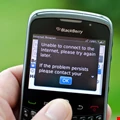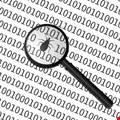Infosecurity News

Twitter Announces Intention to Go Public
Fittingly, Twitter tweeted its Thursday announcement: "We've confidentially submitted an S-1 to the SEC for a planned IPO. This Tweet does not constitute an offer of any securities for sale.” Now, back to work, it added.

Defining and Selling Trusted Computing
A panel of industry experts and members of the Trusted Computing Group (TCG) convened at the Trusted Computing Conference in Orlando this week to discuss the value behind common, hardware-based standards and why it has thus far been a tough sell for the industry

Massive Data Breach Hits Millions of Vodafone Germany Customers
One of the world’s largest corporations has been hit with a widespread data breach: Vodafone Germany said that personal information on more than two million mobile phone customers has been stolen, possibly by a company insider.

BlackBerry Issues Four Security Advisories for BB 10 Devices
BlackBerry prides itself on its reputation as providing a secure mobile option – but it too occasionally finds flaws. The company’s Security Incident Response Team (BBSIRT) has released four security advisories having to do with Adobe Flash Player, WebKit and libexif vulnerabilities.

Massive Botnet is Behind Tor Usage Spike
Despite speculation that Operation PRISM and concerns over NSA surveillance are spurring users to take up online privacy safeguards in droves, the sudden spike in usage for the Tor browser that began in August can be attributable to pretty much one thing: a massive botnet.

Crackdown on Cybercriminals Equals Reduced Cybercrime in Russia
The latest analysis from a major Russian security firm indicates that the Russian cybercrime market has contracted by 6% - down from $2,055 million in 2011 to $1,936 million in 2012.

NSA to Recommend TPM Standard for Government Use
The US National Security Agency (NSA) will advise that all IT products purchased by government agencies to protect information on national security systems make use of hardware-based trusted platform module (TPM) chips or security devices.

Vast Majority of PCs have Java Vulnerabilities
A vast majority – 81% – of Windows machines are running an outdated version of Java, leaving their users wide open to known exploits.

War of the Trojans: 'Alien' Invasion Spreads Third-Party Malware
A nasty Android trojan, dubbed Obad.a, is being spread using botnets controlled by other criminal groups and created using a different malware – an “alien” distribution scheme that has peaked researcher interest.
Missouri S&T Combats Campus Cyberwoes with Software Donation
When it comes to cybersecurity, universities are faced with double goals: they struggle to protect their valuable intellectual property, as well as the personally identifying information of their students, faculty and staff. A recent cybersecurity deployment at the Missouri University of Science & Technology demonstrates one approach to combating the looming danger of data breaches.

Vint Cerf: Cyber-Fire Departments Should Be the First Line of Defense
The internet pioneer and chief evangelist for Google has been calling on the industry to get the next billion people connected worldwide, with ideas that range from low-orbiting satellites to cover rural areas to connectivity delivered by giant balloons in New Zealand. He’s also tackling cybersecurity in all of this, by proselytizing the idea of a “cyber-fire department” to help protect small businesses and individuals against threats to ensure that risks do not spread.

Did the NSA Subvert the Security of IPv6?
Following the Snowden leaks revealing Bullrun – the NSA program to crack the world's encryption – there is an emerging consensus that users can no longer automatically trust any security.

Clearswift Acquires Jedda Systems
Clearswift, an information governance (or data loss prevention) specialist, has announced the acquisition of the intellectual property rights of Australian firm Jedda Systems – and CEO Heath Davies says ‘watch this space’ for more acquisitions.

With a Sale Looming, Struggling BlackBerry Joins FIDO Alliance
Marking one of the first efforts by mobility specialists to get involved in the Fast IDentity Online (FIDO) Alliance, the industry consortium revolutionizing online authentication with the first standards-based specifications, BlackBerry has joined the alliance and been appointed to the board of directors.

NSA and GCHQ Crack Majority of Encrypted Traffic
Given the effort taken by the NSA and GCHQ spy agencies to monitor the greater part of the world’s internet traffic, it was never likely that they would simply ignore all of the encrypted traffic. The latest of the Edward Snowden files show that they did not.

Hand of Thief Trojan Has No Claws
The Hand of Thief (HoT) trojan made waves when it hit the Russian cybercrime underground in July, claiming to target all Linux distributions. But the commercial malware is more like a commercial nowhere: it turns out, the hand is easily amputated.

Bugcrowd Snags $1.6 Million for Crowdsourcing Bug Hunting
Crowdsourcing is big. Bug bounties are big. Why not put them together? San Francisco/Australia-based startup Bugcrowd says why not indeed.
Barret Brown Gagged by Order of the Court
The arrest and trial of Barret Brown, activist and one time self-styled voice of Anonymous, concerns activists and media alike: in theory he faces 100 years in jail for hiding his computer, threatening an FBI agent, and publishing an internet link.

WikiLeaks Publishes Spy Files #3
WikiLeaks has published its latest tranche of files, which it calls Spy Files #3, on the global covert surveillance industry: 249 documents from 92 intelligence contractors. The purpose is to shine “a light on the secretive mass surveillance industry.”

Samsung Bundles Anti-virus into Android KNOX
Samsung is looking to thicken the walls, as it were, in its Android KNOX security-hardened mobile devices, by bundling in enterprise anti-virus from Lookout Software.



